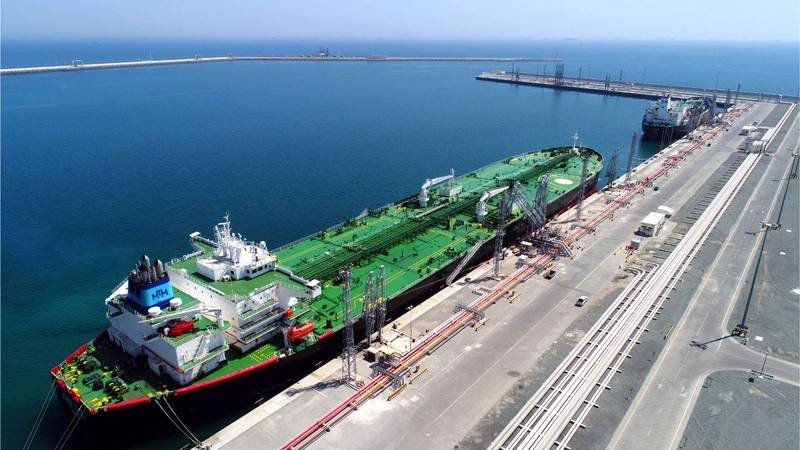UAE's Fujairah Port Set for Robust Growth as Russian Trade Reshuffles
Storage demand and transit volumes are poised to grow further at the United Arab Emirates' Fujairah port this year as Russian trade flows continue to flood the hub, industry executives said on Tuesday.
Russian oil barrels have been flowing into popular ship-to-ship transfer hubs in the Middle East and Asia since last year as Western sanctions led to the reshuffling of trade flows.

"We have seen a huge influx of Russian barrels coming into Fujairah ... particularly urals and naphtha," Maha Abdelmajeed, commercial manager at VTTI Fujairah Terminals, said at the Fujairah Bunkering and Fuel Oil Forum (FUJCON) on Tuesday.
The hub is expected to register strong and healthy demand for storage going forward, Abdelmajeed added.
Total storage capacity at Fujairah stands at 11.1 million cubic meters so far, based on port statistics. Existing tanks are already at full capacity, said trade sources on the sidelines of the forum.
Fujairah had a record year in terms of oil cargoes in 2022, with close to 12,500 vessels calling at its offshore anchorage area, statistics show.
Amid the reshuffling of trade flows, volumes at the port were up about 10% last year, said Martijn Heijboer, business development manager at the port of Fujairah.
"There is still some uncertainty this year as the price cap (on Russian oil) just started in February," said Heijboer, adding that there is room for transit volumes and storage demand to grow because of new projects.
Fujairah will be commissioning a dry bulk export facility in Dibba, adding about 18 million tonnes of aggregate handling capacity.
Landed stocks at Fujairah averaged at 11.47 million barrels (1.81 million tonnes) per week in 2022, climbing from 10.26 million barrels (1.62 million tonnes) in 2021, based on data from the Fujairah Oil Industry Zone. More recently, storage volumes jumped sharply after February sanctions on Russian oil products and Kuwait's Al Zour refinery ramped up exports.
Russia has been selling crude and refined products at discounted prices after international sanctions while the UAE has been taking more cargoes of Russian crude oil, according to ship-tracking data and sources. Russian fuel oil has also flooded Middle East markets since last year.
(Reuters - Reporting by Jeslyn Lerh; Editing by David Goodman)
